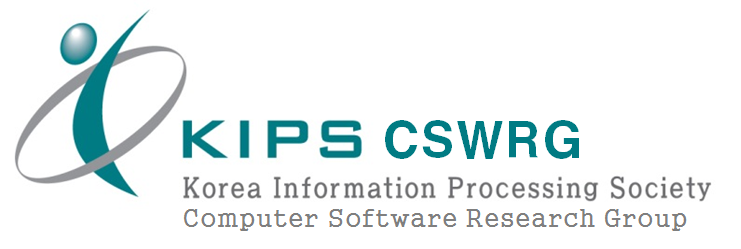 Registered Workshops
Registered Workshops
MCEC 2017
Call for papersThe cloud computing facilitates users with several opportunities by providing wide range of services and virtually unlimited available resources. The large pool of resources and services has enabled the emergence of several new applications, such as virtual reality, smart grids, and smart building control. However, the euphoria transforms into a problem for delay-sensitive applications, which need to meet the delay requirements. The problem becomes clearer and more intense as several smart devices and objects are getting involved in human's life as in case of smart cities or Internet of Things. Current Mobile Cloud Computing (MCC) and Mobile Edge Computing (MEC) paradigm is unable to meet the requirements of low latency, location awareness, and mobility support. To address the problem, researchers have coined a term of Mobile Cloud Computing (MCE) and Mobile Edge Computing (MEC) that was introduced to bring the cloud services and resources closer to the user proximity by leveraging the available resources in the edge networks. MCE and MEC aims to enable the billions of connected mobile devices to execute the real-time compute-intensive applications directly at the powerful resource server or nearest network edge. Specially, the distinguishing features of MEC are its closeness to end-users, mobility support, and dense geographical deployment of the MEC servers. Despite the several advantages, realizing the vision of MCE and MEC are challenging task because of the administrative policies and security concerns. There is a need to investigate the key requirements and potential opportunities for enabling the vision of MCCC and MEC. In this workshop, we are seeking new and unpublished work in the domain of MCC and MEC. More specifically, this workshop will focus on recent developments of experiences in MCCs and MECs.
Workshop Chair: Prof. Kwangman Ko

Topics, but are not limited to:
- Identification of incentives for MCC/MEC service providers
- MEC architecture: peculiar features and evolution
- User transparent application execution frameworks for MCC/MEC
- Real-time communication interfaces and protocols for enabling the communication between MCC/MEC client and MCC/MEC server, between MCC/MEC servers, between MCC/MEC server and the cloud server
- Smart MCC/MEC scheduler to improve resource scheduling that enhances the reliability and scalability
- Resource monitoring mechanism and utilization measuring mechanism
- MCC/MEC resources allocation and management
- Real-time load prediction model to optimize the user satisfaction
- MCC/MEC functionalities virtualization
- Data storage, processing, and management at MCC/MEC platform
- Simulation models for MCC/MEC
- Performance evaluation of MCC/MEC simulators and platforms
- Deployment strategies of MCC/MEC Servers
- Admission control for MCC/MEC
- Pricing and billing models for MCC/MEC
- Lightweight authentication mechanisms that are also feasible to run on the resource constrained devices such as smart sensors
CFP: Download
Submission: http://www.confmanager.net/ft2017r2 (Topic: MCEC 2017)
***Author(s) MUST select topic as "MCEC 2017" at the submssion system****.
HRH 2017
Call for papersCurrently, a diverse innovative technology is being used in multimedia and ubiquitous computing environments. They allow us to create a better world by providing the backbone for remarkable development in our human society where the fields of industry, business, education, government functions and healthcare or medicine are becoming more and more complex and sophisticated faster than ever before. Thus, in this workshop, the our main object is to open a discussion over a basic convergent study that would contribute to humanity by respecting human beings and their lives, while aiding and serving the neglected or isolated people. For this purpose, we'd like to receive a variety of meaningful and valuable manuscripts concerning the subjects such as healthcare service respecting human beings and their lives, an ethical solution to artificial intelligent and Big Data, means of aiding and serving neglected people like the disabled or elderlies, mathematical theories that deeply affect science and industries, or the historical contents that would contribute to humanity in cultural aspect. For the last subject, one could write a manuscript about Guilin as it has been a historic city for many years in Chinese history, for example. In other words, what we are seeking in this workshop is the novel and fresh (non-published) manuscripts in which various ideas are being integrated and fused. Participants may write about one of the subjects listed below but not limited to them.
Workshop Chair: Prof. Jun-Ho Huh

Topics, but are not limited to:
- Healthcare service respecting human beings and their lives
- Ethical solution to artificial intelligent and Big Data
- Means of aiding and serving neglected people like the disabled or elderlies
- Mathematical theories that would deeply affect science and industries
- The historical contents that would contribute to humanity in cultural aspect
- Environmental protection
CFP: Download
CFP: Download(for Japanese)
CFP: Download(for Vietnamese)
Submission: http://www.confmanager.net/ft2017r2 (Topic: HRH 2017)
***Author(s) MUST select topic as "HRH 2017" at the submssion system****.
 Call for Workshops / Special Sessions(Pending)
Call for Workshops / Special Sessions(Pending)

